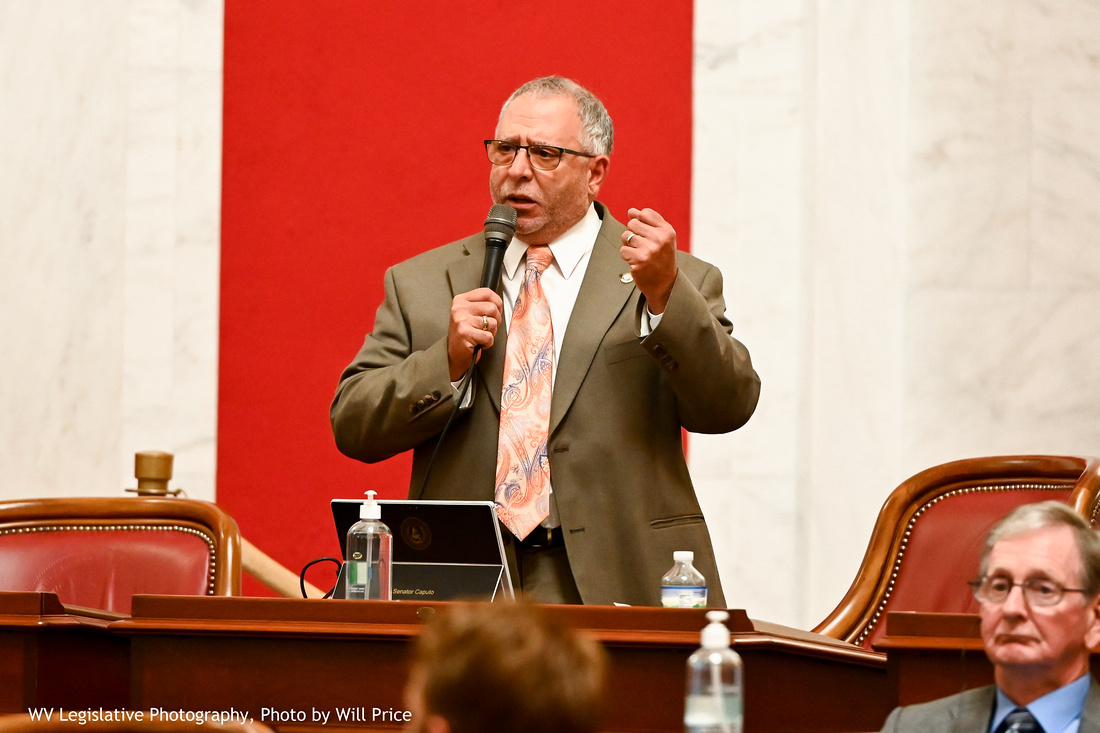The Senate had nine bills on third reading Wednesday, including a bill to improve law enforcement’s awareness of, and ability to interact with, citizens with certain mental health conditions.
Also up for consideration were bills amending school athletics eligibility and new requirements for school board membership.
Senate Bill 208 would require all law-enforcement and correction officers to undergo training for appropriate interaction with, and response to, individuals with autism spectrum disorders, Alzheimer’s, and related dementias.
Sen. Mike Caputo, D-Marion, is the bill’s lead sponsor. He said the idea for the training came from a concerned mother.
“It’s very important because you can mistake them for maybe you know, someone who wants to do harm,” he said. “It came to us from an idea from a mother whose child is on the spectrum. He was so excited to see a policeman pull his mother over, that he ran out of the car. It came to her, ‘He could have really been hurt,’ because a policeman could have mistaken him for someone that was wanting to do harm.”
Caputo said the training has been in place for two years, but was initially made voluntary. Senate Bill 208 makes the training mandatory for all officers.
“We’re dealing with a problem in West Virginia that we want to make sure we treat folks kindly and appropriately,” he said.
The bill specifies the course of instruction relating to autism spectrum disorders shall be developed and delivered by Marshall University’s West Virginia Autism Training Center. Training will focus on de-escalation of potentially dangerous situations, provide an understanding of the different manner in which individuals process sensory stimuli and language and language difficulties likely to affect interaction.
Instructors are also required to include adults with autism spectrum disorders and/or a parent or primary caretaker of an individual diagnosed with autism spectrum disorder in the course.
“I think it’s pretty simple and upfront, it’s not going to cost anything to folks who are being trained anyway,” Caputo said. “It’s just gonna be part of the curriculum, and I think it’s going to be good for West Virginia.”
Senate Bill 208 passed unanimously and now goes to the House of Delegates for their consideration.
Student Athlete Eligibility
Senate Bill 262 would allow students to transfer between schools inside West Virginia and retain athletic eligibility.
Sen. Ryan Weld, R-Brooke, is the bill’s lead sponsor. He said the current rules unfairly punish West Virginia students for moving.
“Students have to sit out for a year because they need this settling in period. They have to get adjusted to their new school and figure it all out.” Weld said in reference to WVSSAC rules. “But it’s very important to keep in mind that that settling in period doesn’t apply if you’re coming from out of state. So if you move here from California, get on that team, get out there and play… For hundreds of other students across the street or the state, if you’re transferring from a public school or from a private school, public to private, you got to sit out.”
Sen. Randy Smith, R-Tucker, opposed the bill. He said schools in rural communities like his already have a hard enough time finding enough students to field sports teams without students being lured away to surrounding schools by athletics.
“When I was a parent, when my children were involved in something, you know, things aren’t always fair,” Smith said. “Sometimes you have to learn to get along with the teacher. You have to learn to get along with a coach. And I just feel that we’re opening it up where if you don’t like your coach, then you look elsewhere. And I just think we’re starting a bad precedent doing this.”
Sen. Patricia Rucker, R-Jefferson, voiced her support of the bill, likening it to school choice measures the legislature has introduced in recent years.
Senate Bill 262 passed 27-5, with two senators absent, and now goes to the House of Delegates for their consideration.
New Requirements For Board Of Education Members
Senate Bill 264 also passed the Senate Wednesday. It would prohibit persons who have been convicted of certain crimes against minors from holding positions on either the state board of education or a county board of education.
Senate Education Committee Chair Sen. Amy Grady, R-Mason, said the requirement will be enforced with a certificate of announcement.
“These crimes are numerous and include such crimes as distribution and display to a minor of obscene matter,” Grady said. “The bill also requires that candidates for county Board of Education provide a statement on the certificate of announcement that the candidate swears and affirms that he or she has not been convicted of one of the applicable crimes when the victim was a minor.“
The bill passed with a unanimous vote, and now heads to the House of Delegates for their consideration.
The six other bills: SB 4, SB 121, SB 192, SB 244, SB 245 and SB 246 were also passed. All now go to the House of Delegates for their consideration.
